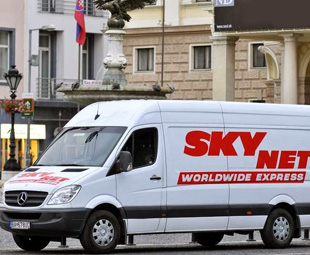SkyNet navigates the logistics of e-tolls

From the small businessman to the major logistics company, everyone has been affected by Gauteng’s e-tolling system. Although this change has generally been considered a disruption, express parcel company SkyNet Worldwide Express (SkyNet) views it as an opportunity.
As part of a newly adopted pricing strategy, SkyNet has opted to absorb the increased costs resulting from e-tolls, on behalf of its customers, instead of marking up its prices. The express parcel company has indicated that this new strategy will not change for the foreseeable future.
The reality is that even those who find a way to avoid e-tolls themselves, still land up paying because of the trickle down effect from transporters to shop owners and then to the man on the street. This move by SkyNet helps to minimise the impact of e-tolls on its customers.
The logistics industry is one that faces the biggest challenge with the e-tolling system. SkyNet claims that the road transport component of South Africa’s logistics costs is already disproportionately high, without adding the recovery costs of e-tolls to the mix. It currently sits at 60 percent of the country’s total logistics costs, this figure is already far higher than the global average, and is set to rise even further.
SkyNet adds that these high transport costs can be attributed to sharp increases in the price of crude oil over the last two decades, very low levels of development and maintenance of the country’s rail and port infrastructure over the last 40 years, high levels of industrial action, and a sharp depreciation of the rand.
Published by
Focus on Transport
focusmagsa




